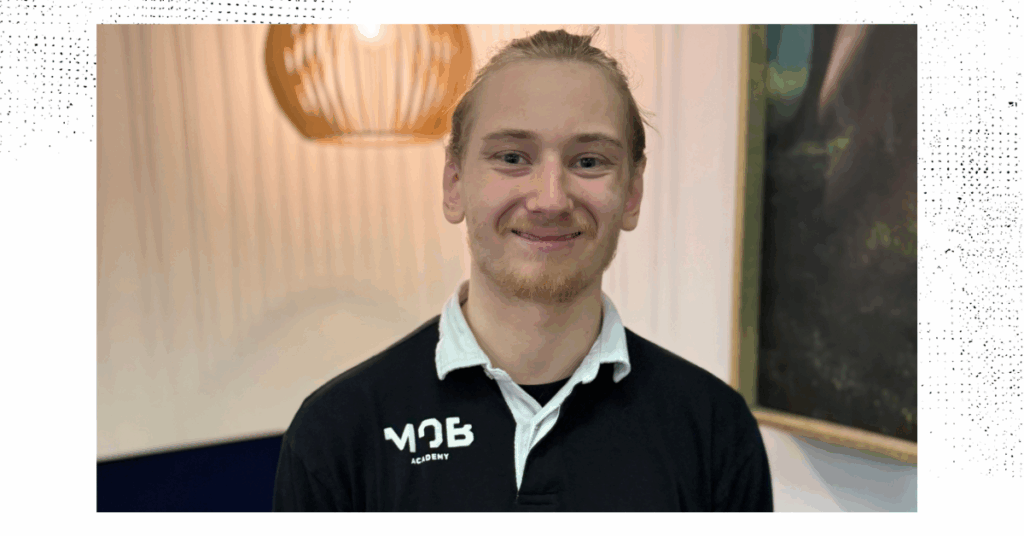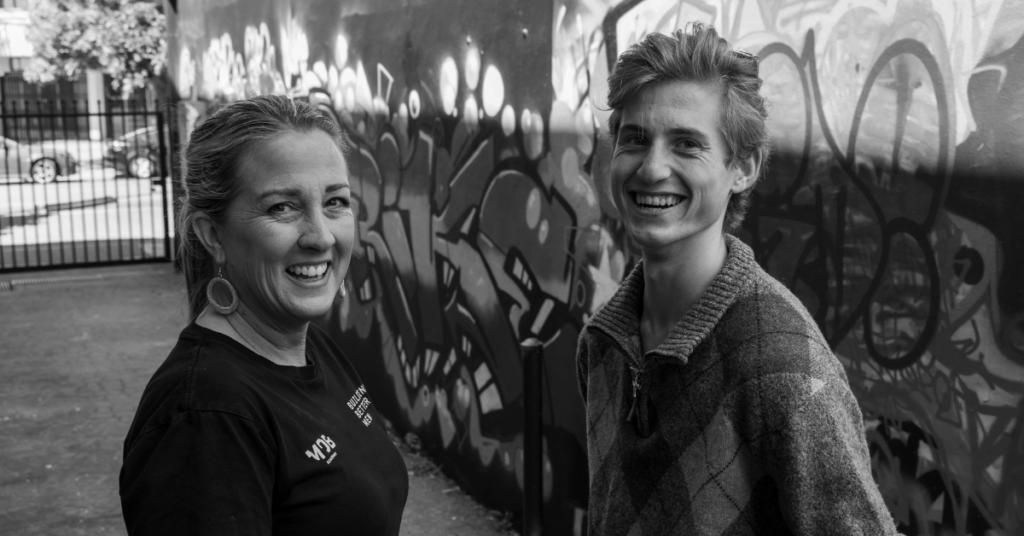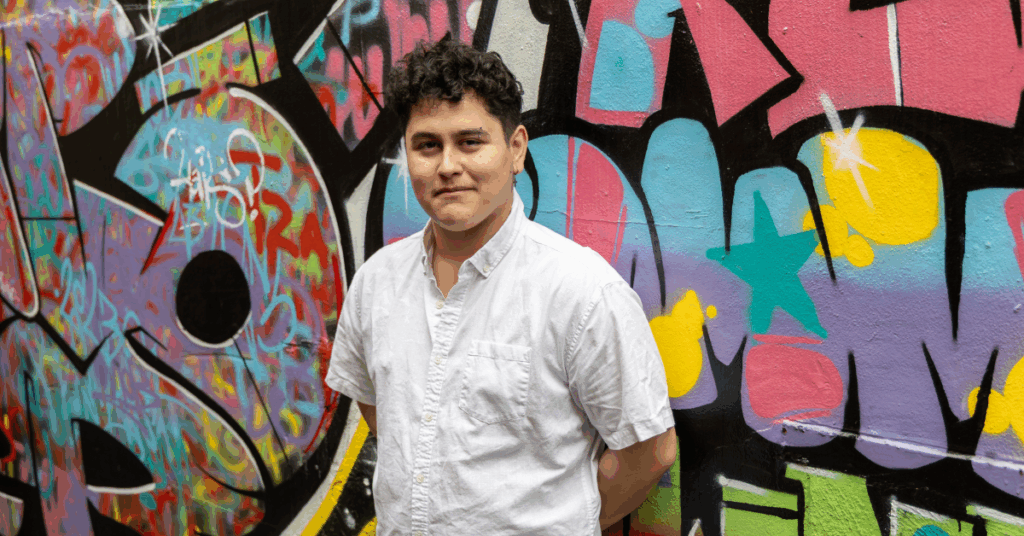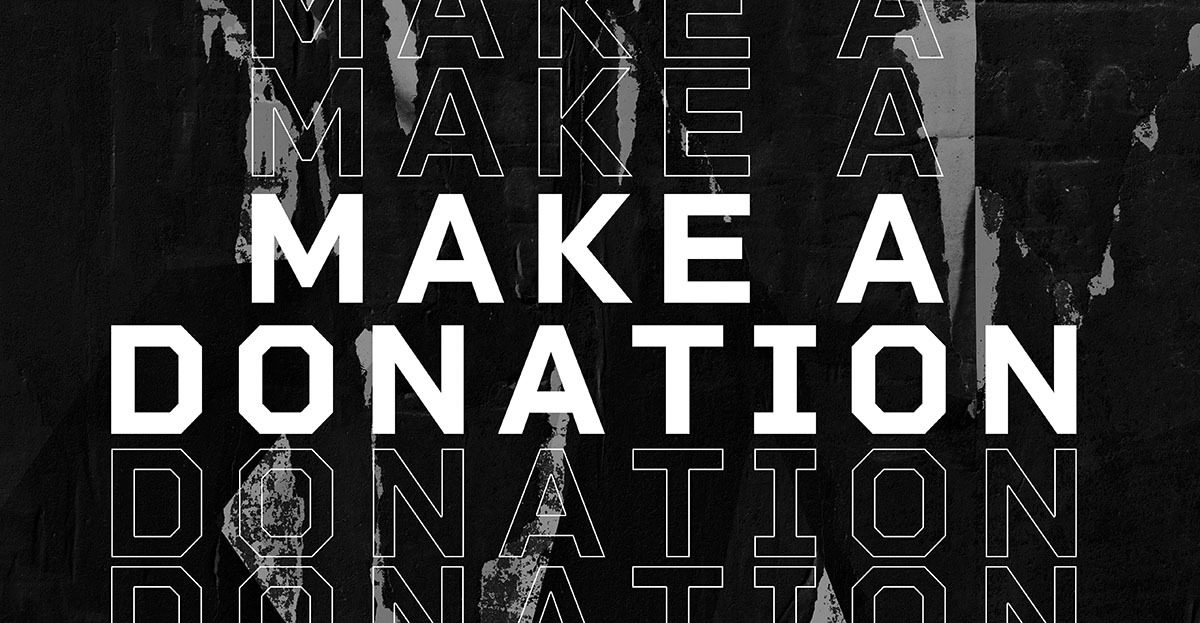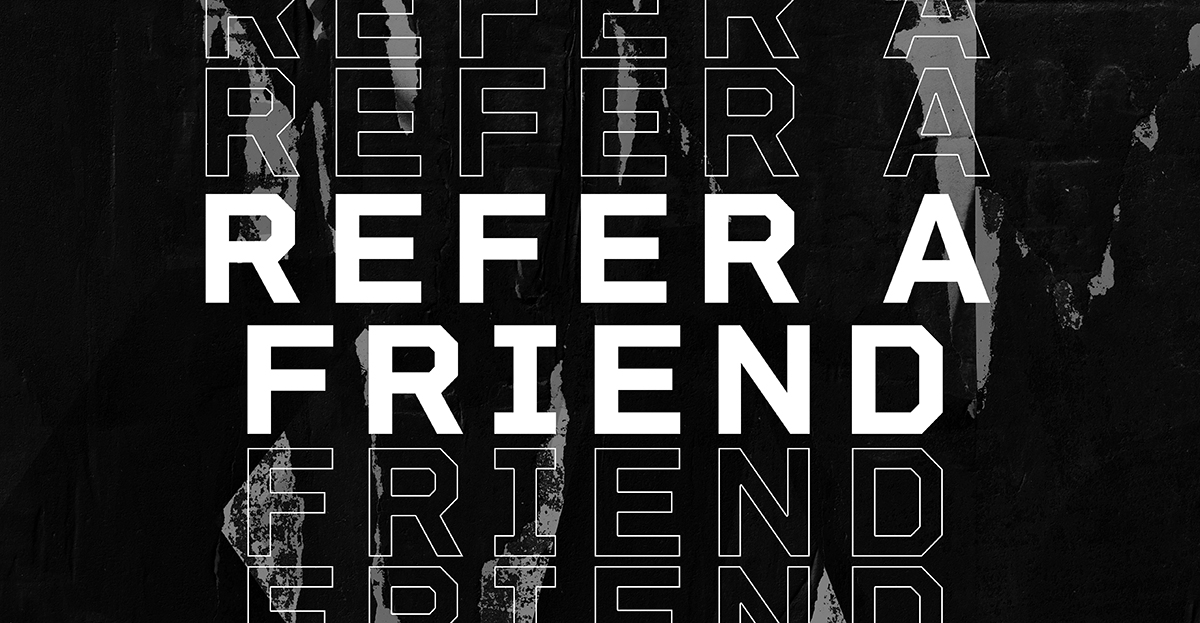“Police have massive… massive power. They can arrest you, and once you are arrested, you lose all your liberties.”
As part of Year 12 MOB Success class, our Head of Pathways, Nathan, sat down with students for an honest discussion about the justice system, built entirely from his own lived experience.
Nathan served 16 years in the Queensland Police Service. His career included general duties in Surfers Paradise, high-intensity work in the Tactical Crime Squad, investigations in CIB, and confronting cases in the Child Protection Investigation Unit.
Nathan explained he made the decision to leave policing behind to focus on early intervention and youth advocacy.
“My love, my passion is for helping young people… recognising that crime is not the best option, and coming up with solutions to assist them get out of that hole.”
For many of our students, conversations about the law come with baggage. Some have experienced stop-and-search encounters firsthand. Others have grown up in environments where police presence hasn’t always felt safe or respectful. Nathan didn’t ignore that. He opened the floor for questions, listened carefully, and responded with honesty.
“I’ll never sit here and defend a police officer for misusing power because it’s wrong,” he said. “But the stereotype works both ways. You’ve felt it. You know what it’s like when it’s not fair. That same thing can apply to the other side too.”
One of the key points Nathan covered was Jack’s Law, a major change in Queensland police powers. As he explained, “Jack’s Law is essentially a provision – a power. Any place, any time, they can stop, search, ask for your name and wand you.”
He also walked students through what actually happens when you’re stopped by police – from the idea of reasonable suspicion to the rights and processes that follow an arrest. He was clear that even if you’re let off with a caution, that’s still considered a charge and those two words, “conviction recorded,” carry serious weight.
Some boys had already experienced being stopped and searched. Nathan acknowledged how confronting that can be, especially in public spaces.
“How would I feel if a police officer came over to me, in the middle of a train station, and searched me, and I knew I didn’t have anything on me? That’s really confronting.”
He was also open about the toll the job can take – physically, emotionally, and mentally.
“We had to undertake testing on a yearly basis to make sure we weren’t going crazy because of the things we were seeing.”
And he spoke openly about why he left.
“I never fell out of love with the job. But it was lifestyle for me. Shift work, night work, weekend work… I wanted to be present, I had a young family.”
When asked what the hardest part of policing was, he answered without hesitation.
“Death. That’s an easy one. It’s really confronting when you have to tell someone that a loved one has passed. Particularly, the vast majority of my experiences in that… it has been with kids. And that’s really tough, man.”
Interestingly, despite everything he’s seen, Nathan encouraged any students who were considering a career in policing to go for it – as long as they were clear about why they were doing it, and the kind of officer they wanted to be.
Now, Nathan brings everything he learned from that career into his work at MOB Academy. As Head of Pathways, he supports students to map out their next steps – whether that’s into employment, further training, or a meaningful future beyond school.
“We’re trying to guide you and mentor you, through education and career development so you leave here with something real.”
His talk formed part of our Legal and Digital Citizenship unit. In the first half of the term, students learn how the Australian legal system works and how it affects their day-to-day lives – from driving laws to drug regulations to their rights when interacting with police. The second half turns the focus online, covering digital safety, privacy, and respectful digital communication.
This unit is about more than just knowing the rules. It’s about helping our boys understand how to navigate systems, how to advocate for themselves, and how to move through the world with confidence and integrity.
At MOB, we believe real learning happens when students see themselves in the content. That’s why we bring in amazing people like Nathan – people who have walked both sides of the system and now choose to stand beside our boys, not in front of them.

